7 Tips for Getting Rid of Uncomfortable Gas Pains
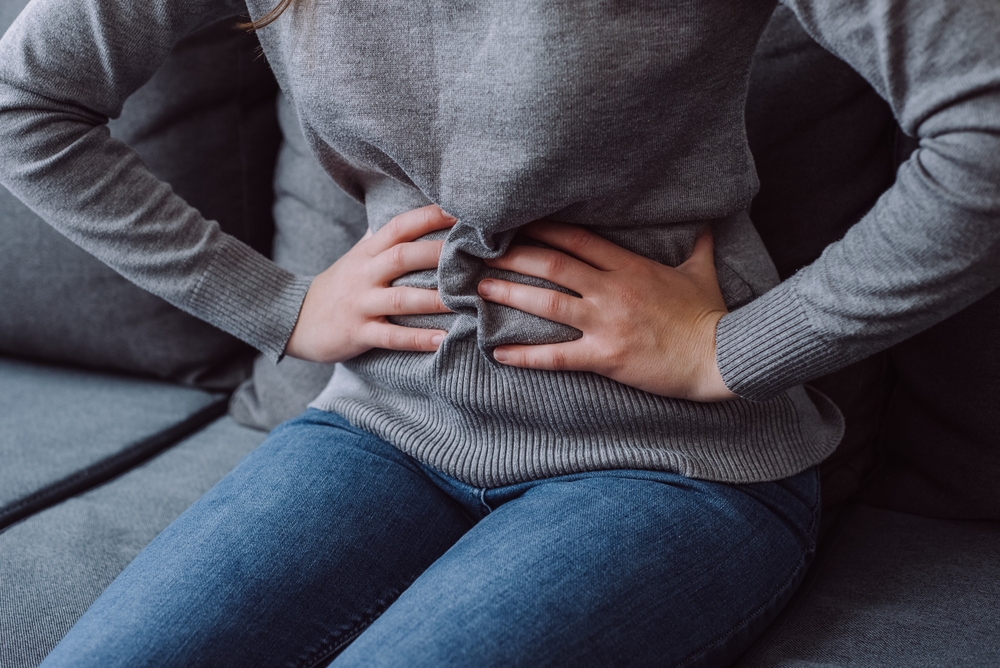
We’ve all been there—those uncomfortable, bloated moments when gas pains strike at the worst possible time. Whether it’s after a big meal or just out of the blue, that tight, crampy feeling can throw a wrench in your day!
The good news? There are simple remedies you can try to help alleviate gas pains and get you back to feeling like yourself.
Here, we’ll cover seven tips to help get rid of gas pains.
1. Try Some Peppermint
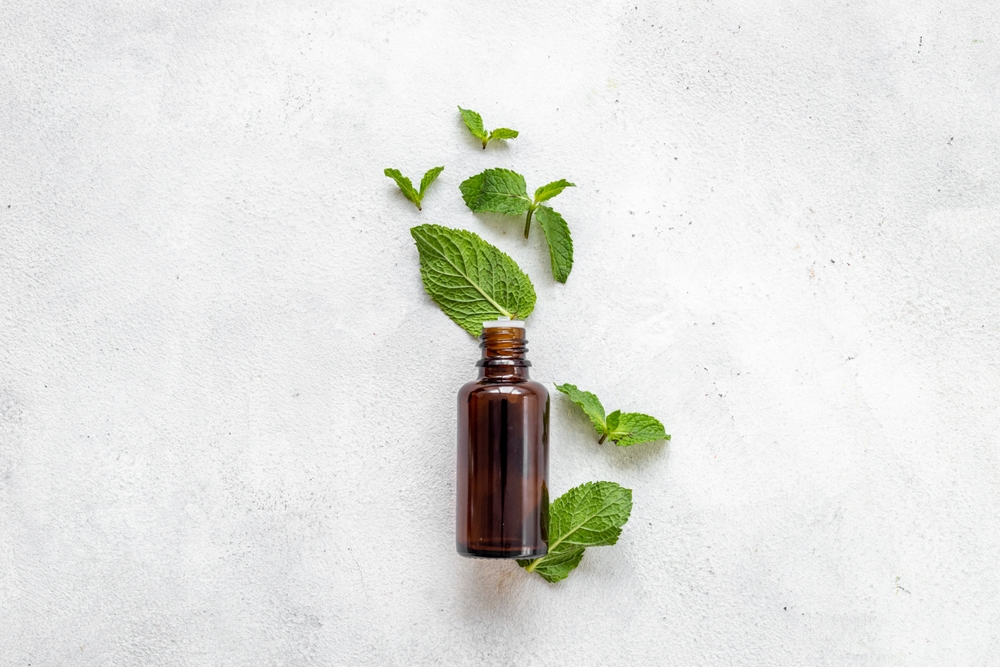
Photo Credit: Shutterstock
Research has found that peppermint oil is a safe and effective option for treating symptoms of irritable bowel syndrome in adults, including gas pains.
That said, peppermint oil or supplements may not be for everyone. They can interfere with certain medications or cause heartburn, so it’s important to speak with your doctor before starting a regimen.
2. Drink a Little Apple Cider Vinegar
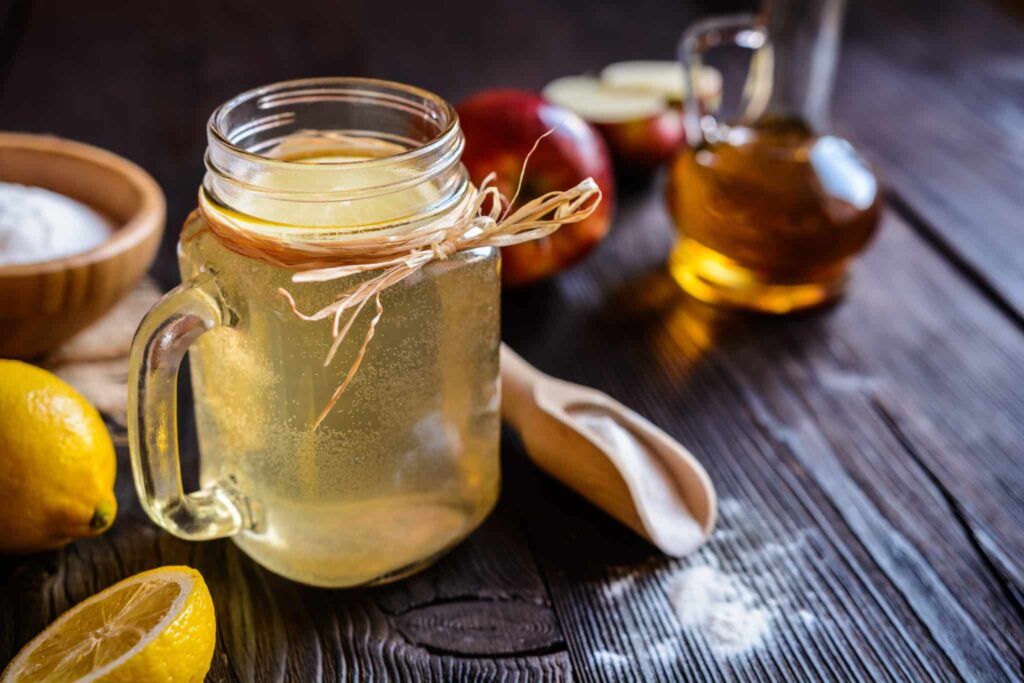
Photo Credit: Shutterstock
Some research suggests drinking apple cider vinegar (ACV) may help fight against bacteria that
That said, ACV may cause irritation in the throat, which is not ideal for those with a history of acid reflux or other gastrointestinal issues. As with any remedy, it’s a good idea to consult with a healthcare professional before adding ACV to your routine.
3. Get Some Exercise

Photo Credit: Shutterstock
Exercise may feel like the last thing you want to do when you have gas pains, but it helps! Research shows that physical activity could be effective in relieving abdominal gas and bloating. Even a brief walk after eating can provide significant relief.
4. Sip on Chamomile Tea
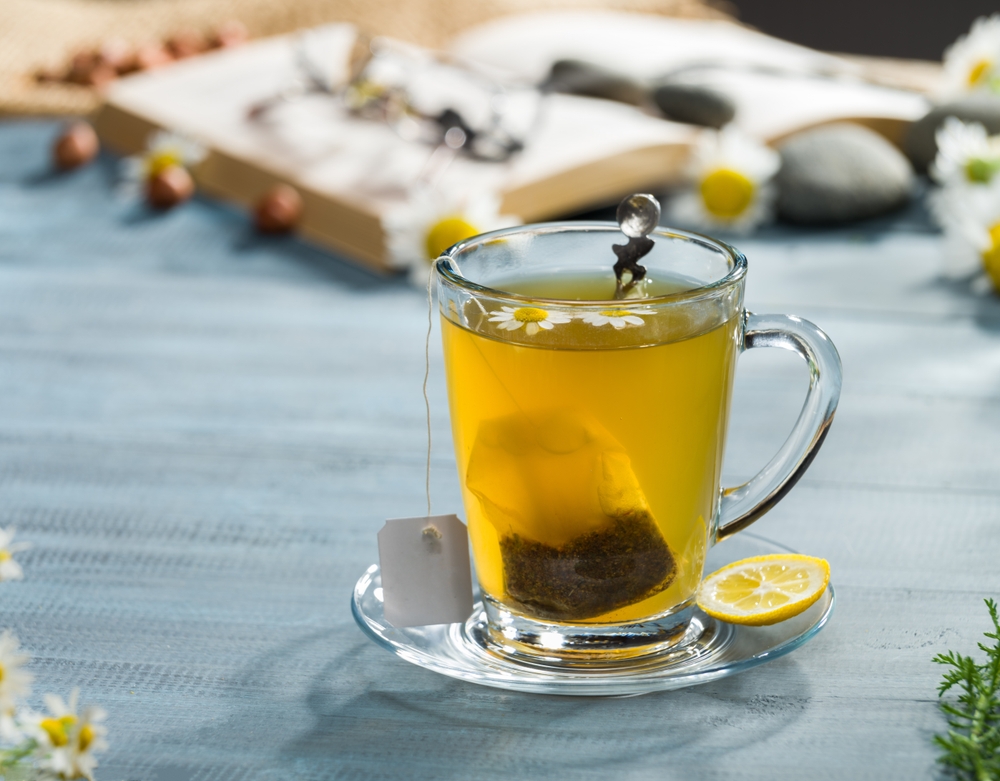
Photo Credit: Shutterstock
Chamomile has anti-inflammatory and antispasmodic properties, which can help relax the muscles of the digestive tract and reduce gas, bloating, and discomfort.
Try sipping on chamomile tea after meals and before bedtime for the most relief.
5. Try Clove Drops or Oil
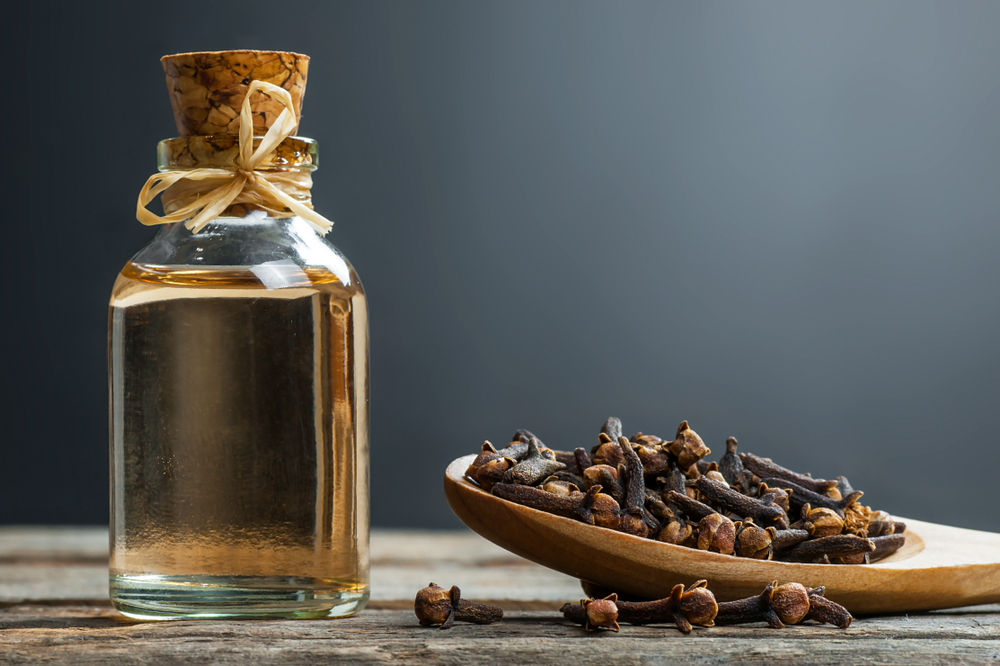
Photo Credit: Shutterstock
Cloves contain a compound called eugenol, which can help relax the muscles in the digestive tract and reduce gas, bloating, and discomfort. Cloves may also help prevent the formation of gas in the gastrointestinal tract.
Try taking a clove oil capsule after meals to reduce gas production.
Safety Note: Clove oil should never be used in children since even small amounts may cause severe side effects, such as seizures and liver damage.
6. Use Baking Soda
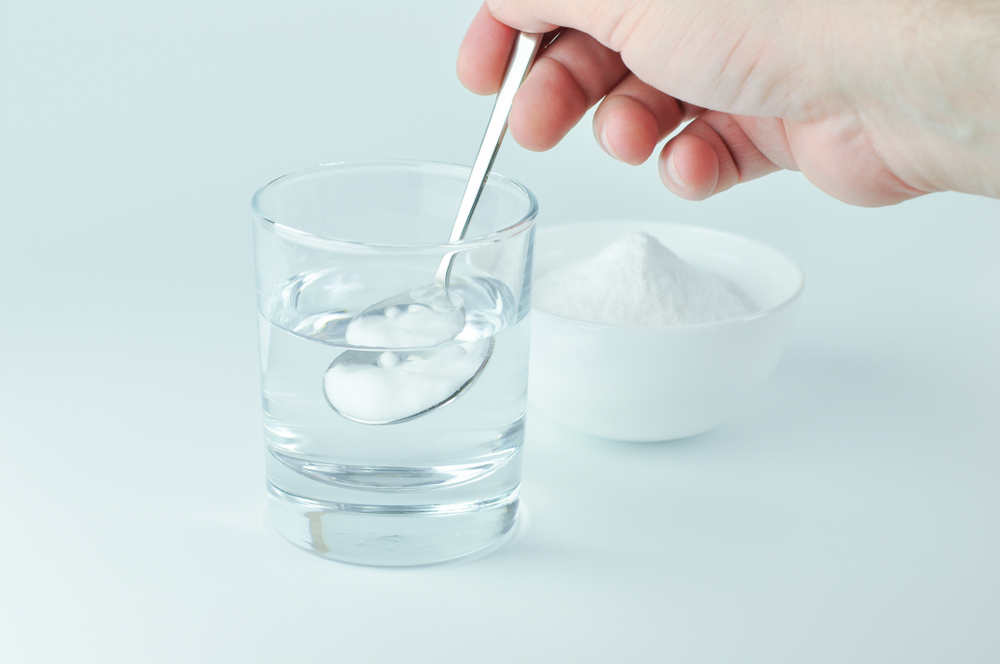
Photo Credit: Shutterstock
Baking soda can help neutralize stomach acid and relieve bloating. To try it, mix 8 ounces of water with 1/2 teaspoon of dissolved baking soda.
Although helpful, baking soda should not be taken more than 1/2 teaspoon at a time or be used long-term. Doing so may increase the risk of electrolyte imbalance or symptoms such as irregular heartbeats.
7. Change Up Your Diet
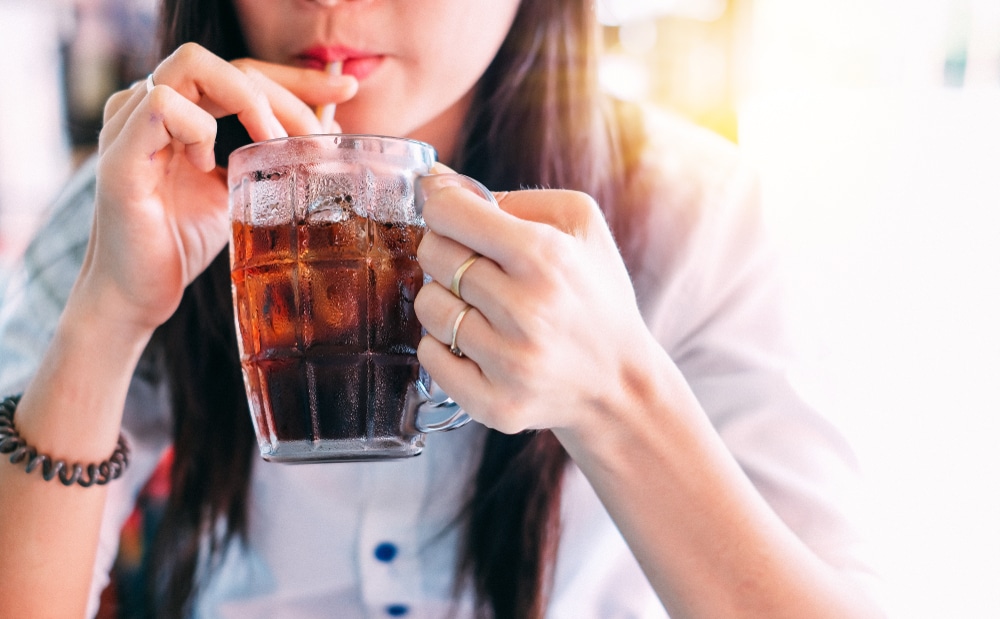
Photo Credit: Shutterstock
What you eat (or don’t eat) can play a crucial role in preventing gas pains. Here are a few gas-causing culprits to limit in your diet:
Carbohydrates
Contrary to popular belief, carbs are not your enemy; they are an essential fuel source for your body. But carbs are more of a double-edged sword because they bind with water more than anything—which is good for glycogen storage but bad news when it comes to bloating.
Carbs increase fluid retention in your body and can make you feel bloated. To deflate, you can reduce carbohydrates for about a day or two and base your diet on greens and lean proteins.
Sodium
Since sodium causes your body to retain fluid, you’re left feeling bloated, puffy, and uncomfortable.
The recommended daily amount of sodium is 1,500 grams, but the average American consumes 3,400 grams—more than double! Instead of flavoring your food with salt, use herbs, fresh ground pepper, cayenne pepper, or salsa.
But more importantly, beware of sodium lurking in surprising places, such as condiments, salad dressings, bread, canned goods, lunchmeats, cheese, cereal, soup, and jarred pasta sauce.
Sodas
Avoid bloating by ditching most bubbly drinks like sodas and sparkling water, which can cause gas to get trapped in your stomach. To spruce up water and help you sip all day, add fruit and herbs for a fun and tasty twist.
A few more gassy foods to cut back on include:
- Beans
- Dairy
- Grains
- Cruciferous vegetables
- Fruits
- Candy
- Onions
- Ultra-processed foods
